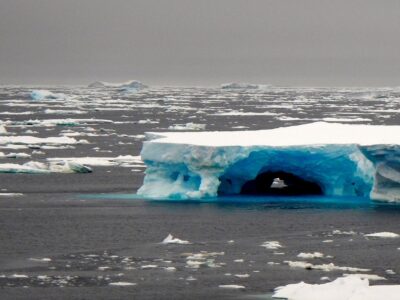
Geochemist Wallace Broecker has been working on climate questions at Columbia University’s Lamont-Doherty Earth Observatory for over 50 years
Wallace S. Broecker, a geochemist whose seminal studies made him one of the earliest voices to warn of global climate change, has been awarded the prestigious Balzan Prize, it was announced today in Milan. The $885,000 prize, one of the world’s largest, is given to honor outstanding science, culture and humanitarian initiatives that advance world peace.
Broecker is often credited with inventing the term “global warming.” In 1987 he published a paper in the journal Nature in which he proposed that heat is transported around the world by massive ocean currents that interact with the atmosphere—the so-called great ocean conveyor, and an idea still regarded as a breakthrough in climatology. Broecker, who has spent his career at Columbia University’s Lamont-Doherty Earth Observatory (part of the university’s Earth Institute), is author of over 400 other scientific articles and several textbooks. He has testified before congressional committees, and continued to spearhead research. He recently coauthored the book Fixing Climate, in which he proposed to remove large amounts of globe-warming carbon dioxide from the air and store it underground, in order to avert what he sees as a potential climate catastrophe. He has already received numerous honors, including a 1996 National Medal of Science, presented by U.S. president Bill Clinton, and the 2006 Crafoord Prize in Geosciences, from the Royal Swedish Academy of Sciences.
In a statement, the Milan-based Balzan Prize Foundation cited Broecker’s “extraordinary contributions to the understanding of climate change through his discoveries concerning the role of the oceans and their interactions with the atmosphere, as well as the role of glacial changes and the records contained in ice cores and ocean sediments. His contributions have been significant in understanding both gradual and abrupt climate changes.”
The other recipients of Balzan prizes this year include Scottish-born medical research Ian Frazer, for his work on vaccines against cervical cancer; New York University philosophy professor Thomas Nagel, for his examination of contemporary ethics; and Italian art critic Maurizio Calvesi, for his contributions to modern art history. The disciplines considered for prizes vary year by year, in order to encourage new or relatively overlooked fields of study, said Sergio Romano, chairman of the foundation. Half the money must be devoted by recipients to further work. Previous recipients have included zoologist Ernst Mayr; composer Paul Hindemith; oceanographer Roger Revelle; and Mother Teresa of Calcutta. The prize, started in 1956, is given in memory of the independent Italian journalist and publisher Eugenio Balzan, who was forced to flee the country’s Fascist regime in the 1940s. The prizes will be presented in Rome on Nov. 21.



